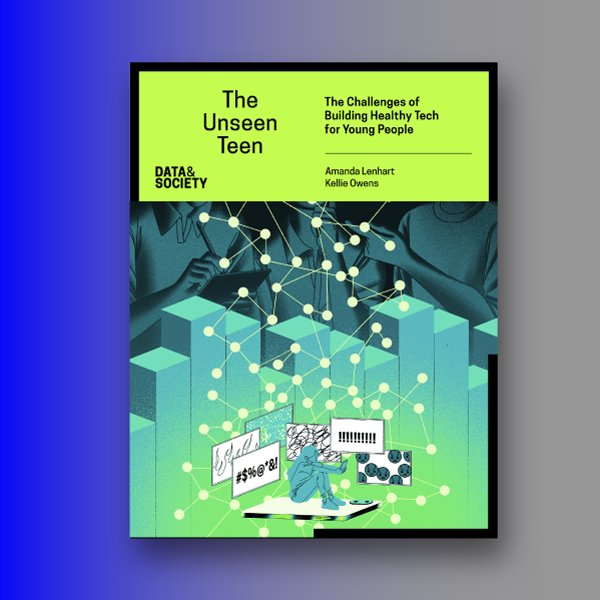At social media and gaming companies, the user is the constant focus—at least in theory. How to get them to use this platform more? To stay longer? To come back tomorrow? Attention and resources are poured into answering these questions throughout the industry. That same attention and those same resources are not, however, put toward the well-being of a major group of their users: young people.
Data & Society’s new report, The Unseen Teen: The Challenges of Building Healthy Tech for Young People investigates how social platform companies think about and design for young people and their health and digital well-being. Based on a multi-year, qualitative research project interviewing social media and social gaming company workers in a variety of roles, we learned that many companies struggle to imagine and design for the breadth of their users, especially minors. Instead by focusing on averages, and limited quantitative metrics, tech companies miss the nuance in differential impacts that has real consequences for real people. Join us at 12 p.m. ET on Wednesday May 19th as we discuss the report, our recommendations, and the real world implications of our findings on those entrusted to help companies think about the well-being of their youngest users.
Closed captioning provided. Please email [email protected] with any other accessibility needs at least 72 hours prior to the event. Documentation, including video, transcript, and resources, will be available on our website afterwards.


